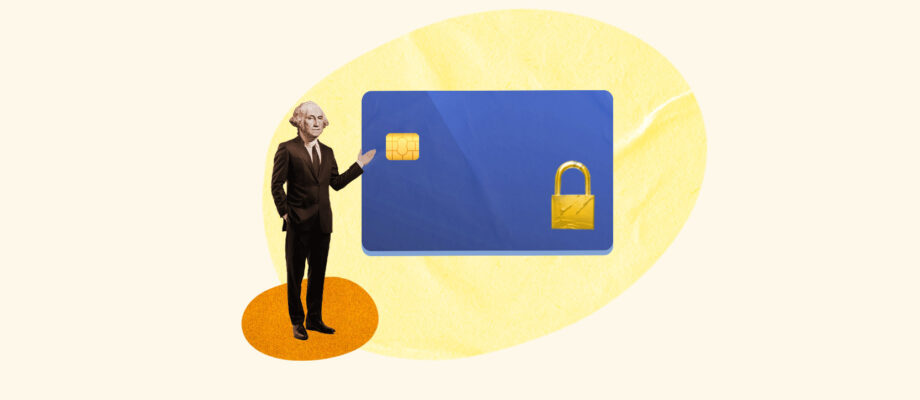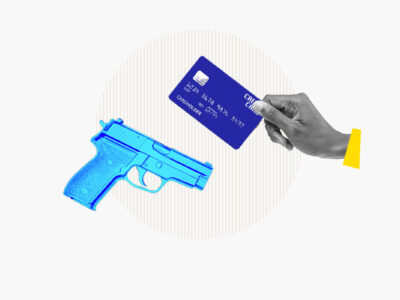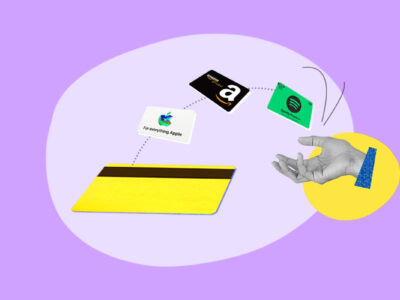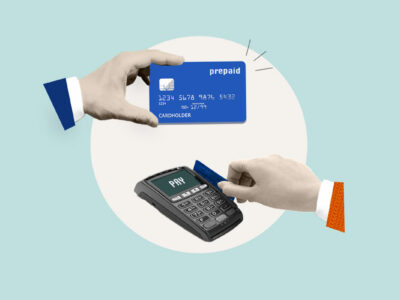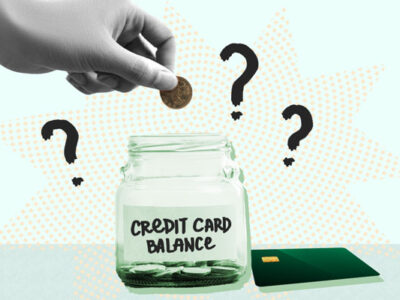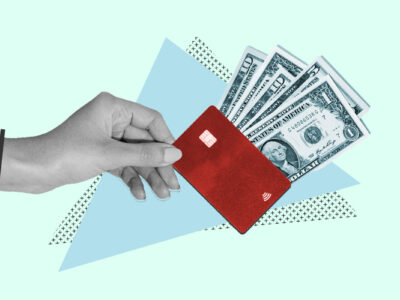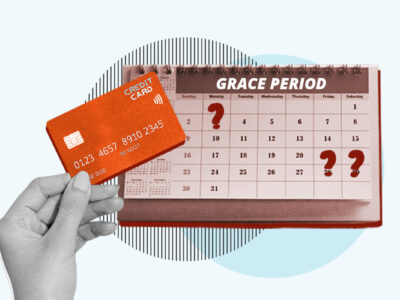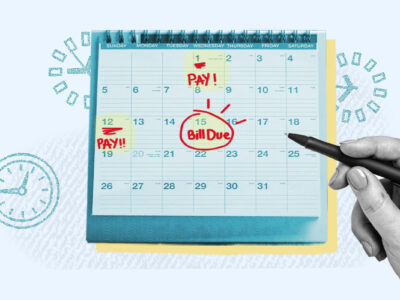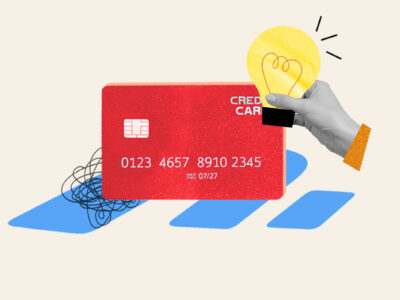If you’re new to borrowing or you’re recovering from financial difficulties, opening a line of credit can be difficult. Luckily, there are options out there for borrowers with bad or limited credit. Some of the easiest credit cards for you to get will be secured credit cards.
Learn what a secured card is, how it works, and whether it’s the right borrowing option for you.
Table of Contents
What is a secured credit card?
A secured credit card is a credit card that can only be opened if you put down a security deposit. A security deposit on a credit card acts as collateral in case the borrower fails to pay back the card’s balance, in which case the card issuer can keep it as compensation for their loss.
This is why secured credit cards are sometimes the only cards available to borrowers with bad credit scores (or no credit score at all). The deposit makes these cards much less risky for lenders.
Secured credit cards usually offer credit limits equivalent to their security deposit. The credit card issuer will specify a range (like $200–$1,000) and the borrower can put down any amount within that range to get an equal credit limit.
Who should get a secured credit card?
Secured credit cards are good borrowing options for people:
- With no credit history or a limited credit history (with the exception of college students)
- With bad credit scores
- With derogatory marks, like a bankruptcy or foreclosure, on their credit reports
Todd Christensen, an AFCPE-accredited financial counselor and education manager at Money Fit, told us that getting a secured credit card is “a good way to start building or rebuilding your credit,” which makes these cards ideal for people with poor or limited credit histories. However, he also says that it’s not really worth getting one if you already have an unsecured card.
How does a secured credit card work?
Secured credit cards work like any other credit card. You have an allotted credit limit to spend on the card. Each month, you have to pay back the amount you borrowed or the balance will accrue interest (additional charges).
There’s also always a monthly minimum amount that you have to pay or you’ll get hit with late fees (and potentially other consequences as well).
Secured credit cards vs. unsecured credit cards
Even though they operate similarly, there are some notable differences between secured and unsecured credit cards:
- Unsecured credit cards don’t require a security deposit, which also means that the credit limit they offer is unrelated to a deposit amount.
- Unsecured credit cards tend to have higher credit limits.
- Many unsecured credit cards have better borrowing terms (like lower interest rates).
- Many unsecured credit cards have more perks and rewards than secured credit cards.
- Most unsecured credit cards require good to excellent credit (though there are unsecured credit cards for poor credit on the market).
Generally speaking, unsecured credit cards come with better terms and more perks. They also make up the majority of credit cards available.
However, if you’re unable to qualify for a worthwhile unsecured card, you can use a secured credit card to build your credit and then either upgrade that card to an unsecured equivalent or use your improved credit to qualify for a completely new unsecured card.
Secured credit cards vs. prepaid cards
People sometimes confuse secured credit cards with prepaid cards. These cards resemble one another at first, but they function quite differently.
When you use a prepaid card, you have to load it with money, which you can then spend until it’s gone. They must be reloaded each time you need funds on the card, so every purchase on the card is essentially paid for in advance.
In contrast, secured cards require a security deposit upfront, then you can spend up to that limit on credit. You can’t use the initial security deposit to make a payment; you have to pay back your purchases after you make them.
How to use a secured credit card
To use a secured credit card, follow these four steps.
1. Apply for a secured credit card
The first step to using a secured credit card is to find a card and apply. To find the right card, look through the best secured credit cards available today, then figure out which one meets your needs in the following areas:
- How much credit do you want?
- How large of a deposit are you willing to pay?
- Are you willing to pay an annual fee?
- Do you want cashback rewards?
- Do you want a card with credit-building features, such as access to your free credit score?
- Do you need to be able to use your card abroad?
Once you find the right secured card for you, submit an application. You may have your credit checked through a hard inquiry, which will knock several points off your credit score, unless you choose a secured credit card that doesn’t require a credit check.
When we asked Christensen what applicants should consider when choosing a secured credit card, he said to “Make sure you confirm with the creditor that you can convert the secured card to an unsecured card after 12 months at most.” He also said to “confirm that the creditor reports your activity to all three consumer reporting agencies.” This way, you’ll get the most benefit from your card.
2. Place a refundable security deposit
To an extent, the size of your security deposit will depend on what the credit card issuer requires, but you have some ability to adjust it based on your own budget. Most secured credit cards have a minimum security deposit of $200, although a few offer even lower minimums.
How much you put down will likely determine your credit limit, so keep this in mind when deciding what to pay.
You’ll either be asked to place your deposit as part of the application process or upon approval. Most secured cards will require you to link a bank account and use that account to put down your deposit. However, some secured credit cards will allow you to place a deposit through a check or money order and don’t require a bank account.
3. Make purchases and payments on your secured credit card
Once you get your secured credit card and activate it, you can use it as you would any other credit card. Make purchases on the card within your credit limit, they pay off the balance by the due date.
It’s critical to make your payments on your secured card on time. One of the main purposes of a secured card is to build credit. If you miss a payment or pay late, your issuer will probably report it to the credit bureaus, which will hurt your credit score, defeating the point of opening the card in the first place.
Understanding the billing cycle on a secured credit card
Your credit card’s billing cycle will act the same as an unsecured card’s. After the statement closing date, you’ll be given a bill for your statement balance, which will include the minimum amount you need to pay by the due date.
If you fail to pay your minimum, you’ll be charged fees and potentially hit with a penalty interest rate. Conversely, if you pay your entire bill by the due date, you won’t be charged interest for that cycle’s purchases.
Many secured credit card issuers report all payment activity to the credit bureaus, so borrowing responsibly can help you build a positive credit history and improve your credit score.
4. Get your security deposit back
Most secured credit cards allow you to get your deposit back when you:
- Upgrade your card
- Close your account
How to get your deposit back by upgrading
If your card issuer offers credit card upgrades (also called card graduations) to an unsecured card, wait until you’ve spent some time borrowing responsibly with your credit card, then call the customer service team and ask if you’re eligible for an upgrade. If they allow you to upgrade, you’ll probably be given your deposit back when the credit account switches over.
How to get your deposit back by canceling your card
If you’re ready to close your account and get an unsecured credit card, make sure your account balance is at zero. Then follow the steps to close your credit card correctly.
If your card issuer’s policy is to return your deposit on account closure (which is the case for most secured cards), you’ll get your deposit back (likely through a check or money transfer) when your account is officially closed.
Should I get a secured credit card?
Getting and using a secured credit card is a great way to build credit if you have a bad credit history or a thin credit file. To decide whether or not a secured credit card is the right option for you, consider the benefits and drawbacks:
In general, getting a secured card is a great option if you need a tool to rebuild your credit after damaging it (or build it from scratch), but eventually you’ll want to upgrade to a better card with fewer downsides.
